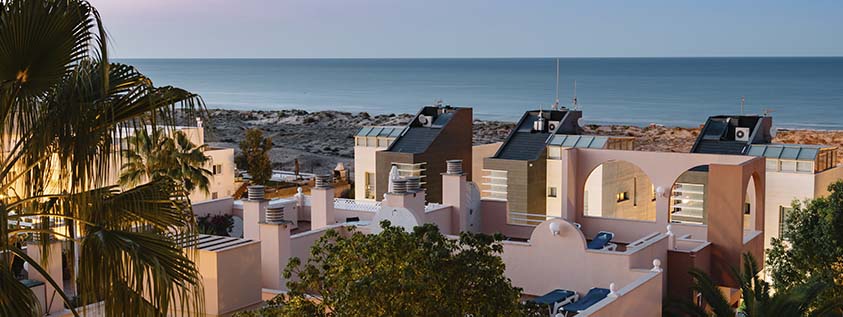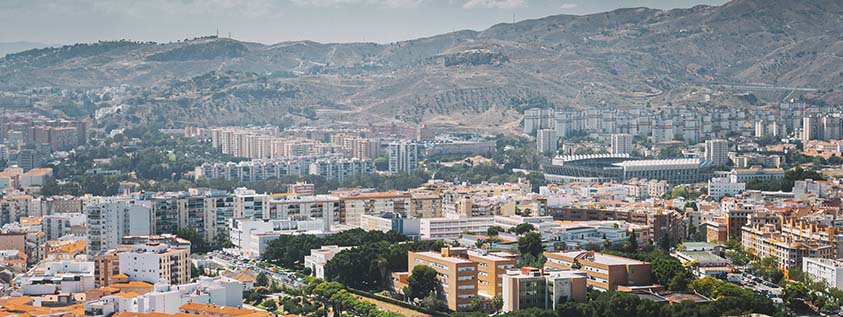Crime in Spain and The Legal System
Crime in Spain is relatively low compared to other European countries. However, you should be aware of some common scams, thefts, and crimes. To ensure your safety while visiting or living in Spain, there are certain precautions you should take. It is important to understand Spanish laws and the legal system to know your rights and responsibilities when it comes to crime.
Content
Is Spain a safe place to live in?
Despite its recent increase in crime rates due to the pandemic, Spain’s crime rate is still one of the lowest in Europe. Spain is still a highly secure nation to live in. The Global Peace Index of 2022 even ranks it amongst the most peaceful countries on earth – at an impressive 29th place. Spain is 100 spots higher than the U.S.A. and 5 spots higher than the U.K. Spain is much safer than many European countries as violence and property crimes are rare.
However, figures are always relative and the data available may not be completely accurate as it is affected by several factors such as the police force, media coverage, and politics.

What is the theft rate in Spain?
Theft rates vary significantly by region in Spain, with some areas experiencing higher rates than others. Below, we provide insight into the theft rates in different cities and regions of Spain.
Andalusia
With the highest population (17.84%), Andalusia unsurprisingly has the highest crime rate in Spain. The crime rate is proportionally higher in regions such as Seville than in other areas. It has a crime rate of 43.6 per 1,000 residents. The most common type of crime is petty crime, theft, robbery, and drug trafficking. In addition, the rate of homicide is higher in comparison to other crimes, such as driving offenses and petty crimes.
Barcelona
In Barcelona, most reported incidents happen in heavily trafficked tourist destinations. Some examples are Las Ramblas, El Prat Airport, Sants train station, Metro stations, and inside Sagrada Familia Area. Moreover, thefts occur frequently around Port Olimpic Area and its surrounding beaches. Other top attractions like Gothic Quarter Park Güell, Plaza Real, and numerous beaches along the coast also had their fair share of undesirable activities.
Valencia
The crime rate in Valencia varied by 12.57 percent in 2022 compared to the same period in 2021. There have been a total of 43,085 criminal offenses, according to data from the Ministry of the Interior’s Crime Balance. Crime in Valencia stands at a rate of 67.6 criminal offenses per 1,000 inhabitants.
Canary Islands
Contrary to their proportion of the national population, which stands at 4.51%, the sun-kissed Canaries have a relatively higher number when it comes to certain crimes such as sex and homicide crimes (6.76% & 6.30% respectively) and robberies (9.00%).
Madrid
Madrid and its surrounding region are the most secure of all large cities in Spain. However, tourists should be cautious when sightseeing around the Prado Museum, Atocha Train Station, Retiro Park, near the Royal Palace, and especially in Plaza Mayor. Most passport and bag thefts occur at Barajas Airport, local hotels, El Rastro (Madrid’s flea market), and within Metro stations. For those traveling to Madrid, it is best to remain aware of your surroundings to avoid becoming a victim of crime.
Types of Crime in Spain
Lottery prize scams
Recently, criminals from various European countries have been using lottery scams to target Spanish residents through emails and letters. In these messages, recipients are told they’ve won a large prize even though there is no evidence that they ever entered the associated foreign lottery draw. To be paid their monetary reward, “lucky winners” must provide personal information, including bank account details, and make an extra payment for so-called “expenses.”
Street swindles
Street swindles involve small groups of people stealing from tourists. Thieves distract tourists and then run away with their belongings, such as wallets, smartphones, jewelry, etc. They use tactics that challenge even the most creative of imaginations. Often, they work together in pairs or larger groups; one person distracts their victim while the others commit a crime. For instance, you might be approached with questions about directions and asked to look at a map – only to discover your possessions have been stolen from behind your back.
Alternatively, someone may “accidentally” spill something on you or pretend to help clean bird droppings off of your clothing as an accomplice makes away with any valuables you had tucked away. Criminals may drop coins or keys at your feet to distract you and attempt to steal your possessions. Fortunately, physical assaults are rare occurrences. However, there are times in which the assailants come from behind and wrap their arms around the victim’s neck to choke them while others rifle through or take away their belongings.
Home visitors scams
Home visitor scams are a tactic used by pickpockets and thieves to gain access to the inside of homes. They may pose as utility workers, postal employees, delivery people, or even police officers to gain access to a residence. Once inside, they can easily steal items that have been left out in plain sight. It’s best to never open the door to anyone unknown. If they do have valid identification, always ask to see it before opening the door.
Sometimes, the criminal masquerades as a worker from an energy provider, such as a gas installation company, to contact their target and lead them to believe that they must perform some kind of system check. Once the resident agrees, these criminals will take advantage of this opportunity by charging for services never actually done.
Housebreaking and Burglary in Spain
Foreigners are often victims of housebreaking and burglary in Spain, as criminals know many have items worth stealing such as laptops, cameras, or electronic devices. Installing an efficient alarm system and/or video surveillance cameras in your home is highly advisable to deter burglaries. If you live in Spanish urban areas, it is also important to be aware of the presence of gangs and organized crime groups that may target homes for robbery.
Domestic Violence
In Spain, there has been an increase in domestic violence over the years. This form of psychological or physical attack may be committed by a family member, a romantic partner, or someone with whom the victim has had previous contact. Violent conflicts can take many forms, from physical aggression to manipulation and control, and can occur in all socio-economic classes. The Spanish government has implemented a law to protect victims of these attacks and prosecute offenders to combat this issue.
Armed conflict
In Spain, several armed groups have been involved in conflicts over land resources and ethnic origin. These groups have been responsible for committing various crimes, including homicide, armed robbery, and causing predatory violence.
Drug Trafficking
Drug trafficking is a major issue in Spain, serving as an important transit point for drug traffickers. Drugs are often behind the motivation for most crime in Spain’s major cities. Drug users in Spain may be more likely to commit petty crimes such as theft and burglary to finance their habit. Spain is one of the primary entryways for cocaine and hashish into Europe, and it’s relatively easy to obtain drugs in urban areas. Though using or possessing soft drugs such as hashish is illegal, authorities often overlook its usage. It is common to see people smoking openly in various bars and clubs. However, the possession and use of hard drugs such as cocaine, ecstasy, and heroin are strictly prohibited and punishable by law.
What to do if you’re a victim of crime
Spanish law differentiates between public and private crimes in its judicial system. Publicly-prosecuted offenses are handled solely by the authorities, meaning no external party would be allowed to participate. Private crimes, on the other hand, require a third party to report the crime in order for it to be prosecuted.
If you’re a victim of a crime in Spain, you must report it to the local police or Civil Guard and provide as much information about the incident as possible.
If you’re a foreign visitor, it is also advisable to contact your country’s embassy or consulate in Spain in case you need assistance.
Further questions about crime in Spain

Why is crime so low in Spain?
Even though there are very large urban populations in Spain, strong family patterns, often based around rural origins, keep society structured. This contributes to the lowest crime rate in Spain, which is lower than in many other European countries. Crime is higher in countries where the industrial revolution wiped out these family structures.
In addition, the Spanish legal system has tough penalties for certain types of crimes, such as intentional homicides and other violent offenses.
How is crime in Spain compared to the U.K.?
Crime in Spain is generally lower than in the U.K. Spain is one of the most secure countries in Europe, with only 48.8 criminal acts per thousand citizens reported – significantly lower than many other European nations such as the U.K. (79.5), Belgium (74.8), Germany (60.7) and Denmark (53.9).
Is Spain safer than the U.S.A.?
Spain is generally considered to be safer than the U.S.A., with a homicide rate of 0.6 per 100,000 people compared to the startling 6.3 murders in America’s population per 100,000– a difference that is tenfold. When looking at robberies specifically, the U.S. shows 314 occurrences for every 100,000 individuals while Spain only experiences 129 crimes out of each group of one hundred thousand citizens.
A word from SpainDesk
Crime statistics in Spain take many forms and affect the safety of individuals living in the country. However, it is essential to understand that the legal system serves as an important mechanism for justice – where those convicted are held accountable for their actions and victims can receive compensation to help heal. As the traveler, it is your responsibility to ensure that you comply with all foreign entry regulations and have the necessary documentation. We always encourage travelers to double-check content before departure from other reliable sources as information can change without notice.

